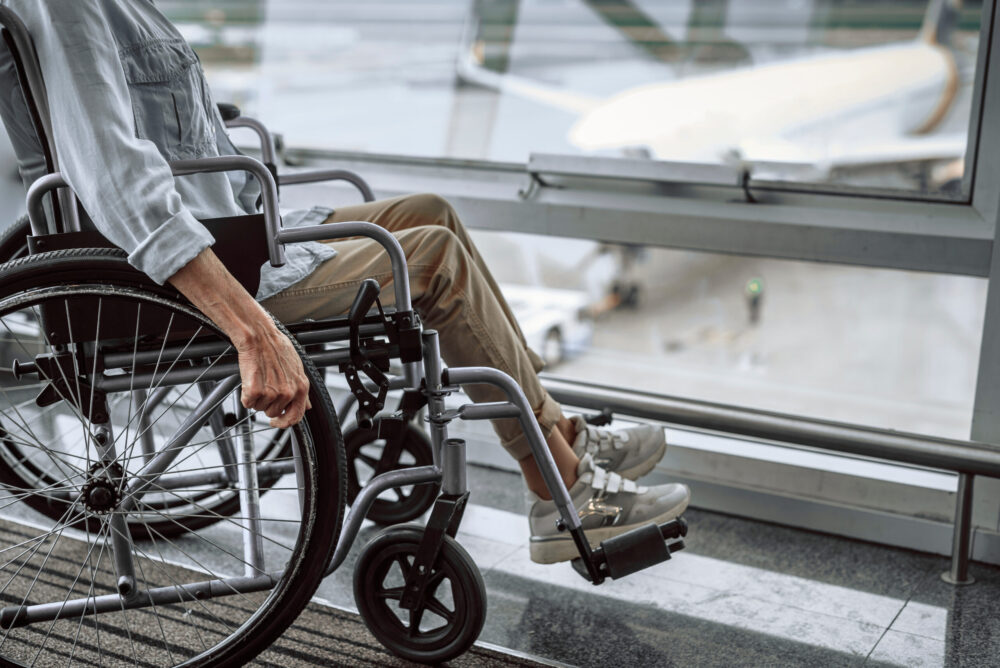
Hospice and Travel
Published
December 10, 2024Many individuals may believe hospice patients are unable to travel. However, it is possible through careful planning and coordination with hospice providers.
Hospice care teams can work to ensure that hospice patients have the necessary supplies, equipment, medications and support during travel. You may want to consider coordinating hospice services with another hospice provider during your travel in case of unexpected needs on the trip. In some cases, your hospice provider may have a location in the area you are traveling to. You should keep your hospice provider up to date on any travel plans, your plans for any needs during the trip and any updates once you return.
Travel considerations
Some things to consider before travel may be:
- Obtaining approval for medical clearance from your hospice provider.
- Communicate your plans with your hospice provider.
- Work with your current hospice provider to set up temporary hospice services at your travel location. The National Hospice & Palliative Care Organization offers a guide to assist hospice providers in supporting patient travel.
- Build a list of questions to ask your hospice provider before your trip, such as if your loved one on hospice can handle certain travel conditions, such as flights or if additional support is needed for managing symptoms.
Preparing for Travel
Before the Trip
Preparing for a trip as a hospice patient involves increased planning, coordinating with healthcare providers and ensuring all necessary medications and equipment are available. It is crucial to have a clear emergency plan and support to manage any unexpected health needs during the trip.
Some ways to prepare before the trip may be:
- Prepare adequate supply of medication and medical equipment. Your current hospice provider may need to plan ahead and coordinate with other medical equipment providers while you travel.
- Have an emergency plan, including contact information for a current and temporary hospice provider in the travel location, and you may want a list of current conditions and medications.
- Plan ahead for weather and activities that may require physical exertion.
- Be sure to pre-book accommodations that work best for patient’s accessibility if needed.
- Determine the best option for transportation while considering factors such as accessibility and amenities.
- If traveling for a longer time, a hospice patient may need to be transferred off their current hospice provider and admitted to a new provider in your travel area.
During the Trip
During the trip, you will want to ensure that all necessary medications and supplies are easily accessible, and that the patient’s care plan is followed. It is crucial to maintain open communication with your hospice provider, especially to address any concerns or changes in condition.
It is important to keep the patient comfortable and their limitations during the trip. Family and loved ones should maintain open communication with their loved one on hospice, if able and incorporate breaks throughout the trip.
Some ways to keep your loved one comfortable during the trip may be to pack ready-to-go snacks and drinks, take medications as prescribed to manage discomfort or pain, and pack items such as pillows, blankets and comfortable clothing.
After the Trip
After the trip, it is important for hospice patients to schedule a follow-up with their care team or case manager to assess any changes in their health. Additionally, their hospice care team should ensure all medications and supplied are restocked and any adjustments to the patient’s care plan are made. A hospice patient’s clinical team will then resume care as usual.
A hospice patient may also want to rest more after a trip.
For Families and Travel Companions
While traveling with a loved one on hospice may be challenging, it is important to maintain open communication and offer emotional support and additional comfort measures during a trip. It can be helpful to maintain a mindset of patience and flexibility while traveling.
Conclusion
With thorough planning, coordination and communication, hospice patients may be able to safely travel while maintaining their comfort and dignity. Post-trip follow-ups and adjustments to care plans will ensure that a hospice patient’s health needs continue to be met. For any questions about traveling while on hospice, reach out to your local St. Croix Hospice care team.
Frequently Asked Questions
Can hospice patients travel on an airplane?
Yes, many hospice patients can travel on an airplane. However, it is important to implement careful planning and coordination with hospice care providers.
Can a patient receive care from another hospice provider while traveling?
Yes, your hospice care team can coordinate with another hospice local to where you are traveling for the duration of your trip.
Will my current hospice help arrange for local coverage of services where I am traveling?
Yes, they can help arrange services with other hospice agencies in your local travel area.
How long can a hospice patient travel for?
If traveling for an extended time, it may be appropriate for your current hospice agency to arrange for a transfer of care. It is best to always consult with your current hospice agency.

